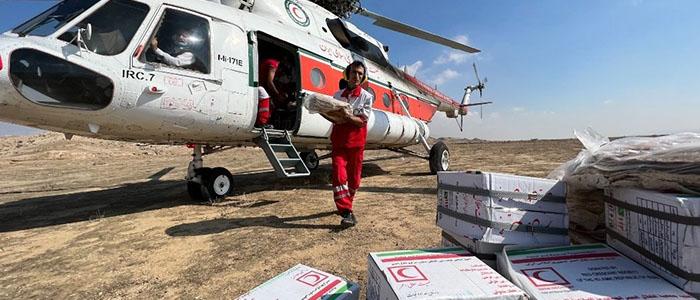
In response to the widespread floods that ravaged most parts of Iran last month, the EU is providing €100,000 (over 4,75 billion Iranian rial) in humanitarian funding to assist the most affected communities.
The aid will benefit over 22,000 people in some of the hardest hit areas in the provinces of Hormozgan, Kerman, Sistan Baluchestan and Fars.
EU funding supports the Iranian Red Crescent Society (IRCS) in providing the most vulnerable communities with food packages and essential household items.
Iran has one of the world’s highest numbers of COVID-19 cases and all necessary measures will be in place to minimise the transmission of the virus during the operation.
The funding is part of the EU’s overall contribution to the Disaster Relief Emergency Fund (DREF) of the International Federation of Red Cross and Red Crescent Societies (IFRC).
More than 80,000 people in 20 provinces have been affected by the floods, triggered by days of heavy rainfall that started on 1 January. The floods have killed 10 people, and damaged homes and agricultural lands—the main livelihood for many.
The floods, which also caused widespread destruction of the drinking supply system, vital facilities, and other infrastructure, have brought transportation to a halt. They have forced relief teams to bring critical supplies to flood-ravaged communities by air.
Affected people have been evacuated to safe areas and medical care has been provided to those injured.
Background
The European Union together with its Member States is the world's leading donor of humanitarian aid. Relief assistance is an expression of European solidarity towards people in need around the world.
It aims to save lives, prevent, and alleviate human suffering, and safeguard the integrity and human dignity of populations affected by natural hazards and human-induced disasters.
Through its European Civil Protection and Humanitarian Aid Operations, the European Union helps millions of victims of conflicts and disasters every year.
The European Commission has signed a €3 million humanitarian contribution agreement with the International Federation of Red Cross and Red Crescent Societies (IFRC) to support the Federation's Disaster Relief Emergency Fund (DREF). Funds from the DREF are mainly allocated to “small-scale” disasters – those that do not give rise to a formal international appeal.
The Disaster Relief Emergency Fund was established in 1985 and is supported by contributions from donors. Each time a National Red Cross or Red Crescent Society needs immediate financial support to respond to a disaster, it can request funds from the DREF.
For small-scale disasters, the IFRC allocates grants from the Fund, which can then be replenished by the donors. The contribution agreement between the IFRC and ECHO enables the latter to replenish the DREF for agreed operations (that fit in with its humanitarian mandate up to a total of €3 million.
Related pages
Details
- Publication date
- 8 February 2022
- Author
- Directorate-General for European Civil Protection and Humanitarian Aid Operations (ECHO)
